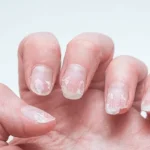Dark under-eye circles are often dismissed as a cosmetic concern, associated with lack of sleep or stress. While these factors can contribute to their appearance, persistent or severe dark circles may signal underlying health issues that shouldn’t be ignored. Your body has ways of communicating when something is off, and dark circles might be one of them. Let’s explore the possible causes and what they could mean for your overall health.
1. Lack of Sleep
One of the most common causes of dark circles is insufficient sleep. When you’re sleep-deprived, your skin becomes paler, allowing the blood vessels under your eyes to become more visible. Sleep deprivation can also lead to fluid retention, which may cause puffiness and make dark circles appear worse. Aim for 7–9 hours of quality sleep per night to combat this issue.
2. Allergies or Nasal Congestion
Dark circles can be a result of allergies or chronic nasal congestion, often referred to as “allergic shiners.” When your sinuses are inflamed, it can slow down blood flow in the area, causing pooling of blood under the eyes. Treating the allergies or congestion with antihistamines, nasal sprays, or lifestyle adjustments can reduce the appearance of dark circles.
3. Iron Deficiency or Anemia
Iron deficiency can lead to anemia, a condition where the body doesn’t produce enough healthy red blood cells. This can result in poor oxygen circulation, making your skin look pale and enhancing the visibility of blood vessels under the eyes. If you suspect anemia, incorporate iron-rich foods like spinach, lentils, and lean red meat into your diet or consult a healthcare professional for supplements.
4. Dehydration
When your body is dehydrated, your skin can become dull and sunken, making dark circles more prominent. Proper hydration is essential for healthy skin and overall well-being. Ensure you’re drinking enough water throughout the day and limit caffeinated or sugary beverages that can contribute to dehydration.
5. Genetics
In some cases, dark circles are simply hereditary. If your family members have similar concerns, you may have inherited thinner skin around the eyes or more prominent blood vessels. While genetics can’t be changed, proper skincare and lifestyle habits can help minimize their appearance.
6. Aging and Loss of Skin Elasticity
As you age, your skin naturally loses collagen and elasticity, making the area under the eyes appear thinner and more transparent. This can accentuate dark circles and fine lines. Use skincare products with ingredients like retinol, hyaluronic acid, and vitamin C to promote collagen production and improve skin texture.
7. High Stress Levels
Stress not only disrupts your sleep but also affects blood circulation and skin health. Prolonged stress can cause your skin to look dull and tired, making dark circles more pronounced. Incorporate stress-relief techniques such as meditation, exercise, or deep breathing to improve both your mental and physical health.
8. Sun Exposure
Excessive exposure to the sun can stimulate melanin production, leading to hyperpigmentation around the eyes. Always wear sunscreen, sunglasses, and a wide-brimmed hat to protect the delicate skin in this area from UV damage.
9. Smoking or Excessive Alcohol Consumption
Lifestyle habits like smoking and heavy alcohol use can take a toll on your skin. Smoking reduces blood circulation and damages collagen, while alcohol dehydrates your body and skin, worsening dark circles. Quitting smoking and moderating alcohol intake can make a noticeable difference in your skin’s health.
10. Poor Diet and Nutritional Imbalances
A diet lacking essential vitamins and minerals can contribute to dark circles. Nutrients like vitamin K, vitamin C, and omega-3 fatty acids play a crucial role in maintaining skin health and reducing inflammation. Incorporate fruits, vegetables, nuts, and fish into your diet to nourish your skin from within.
11. Chronic Health Issues
Sometimes, dark circles are a sign of an underlying medical condition, such as thyroid dysfunction, kidney issues, or liver problems. If your dark circles persist despite lifestyle changes or are accompanied by other symptoms, it’s important to seek medical advice to rule out serious health concerns.
Tips to Minimize Dark Circles
- Skincare Routine: Use eye creams with caffeine, peptides, or niacinamide to brighten and firm the under-eye area.
- Cold Compress: Applying a cold compress can reduce swelling and improve blood circulation.
- Adjust Sleep Position: Sleeping with your head slightly elevated can prevent fluid from pooling under your eyes.
- Stay Hydrated: Drink plenty of water to keep your skin healthy and glowing.
- Wear Sunscreen: Protect the delicate under-eye area from UV rays with a broad-spectrum sunscreen.
Final Thoughts
Dark under-eye circles are often a sign that your body is trying to tell you something. While some causes are harmless, such as lack of sleep or dehydration, others may indicate underlying health issues that require attention. By addressing the root causes and adopting healthy habits, you can reduce their appearance and improve your overall well-being. If your dark circles persist despite lifestyle changes, consult a healthcare professional for further evaluation. Remember, your body’s signals are worth listening to—they’re your first line of communication with your health.











